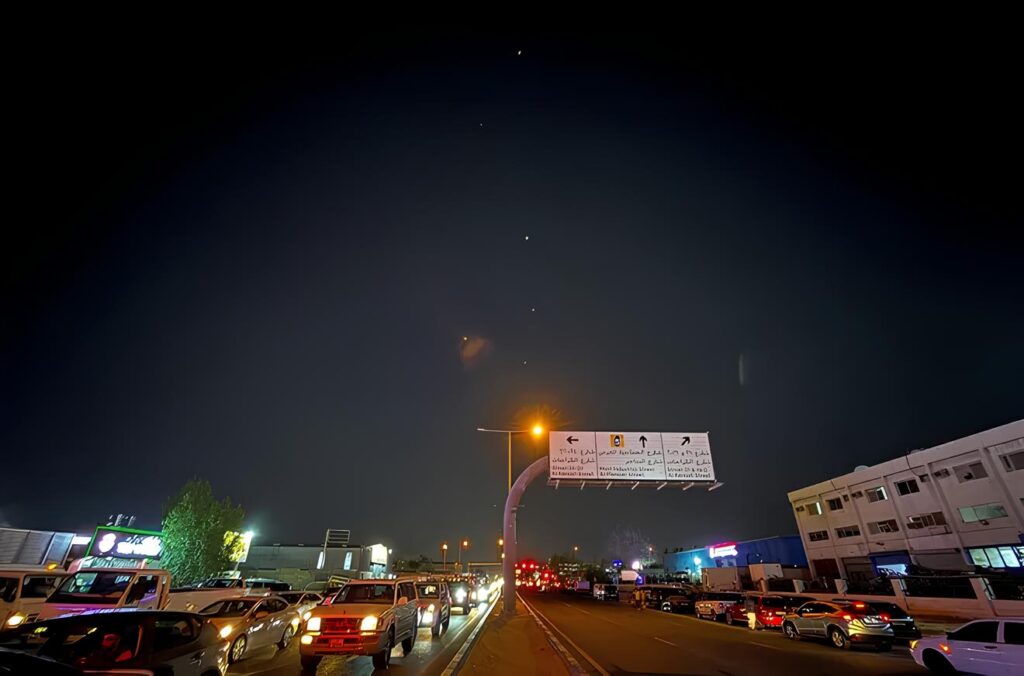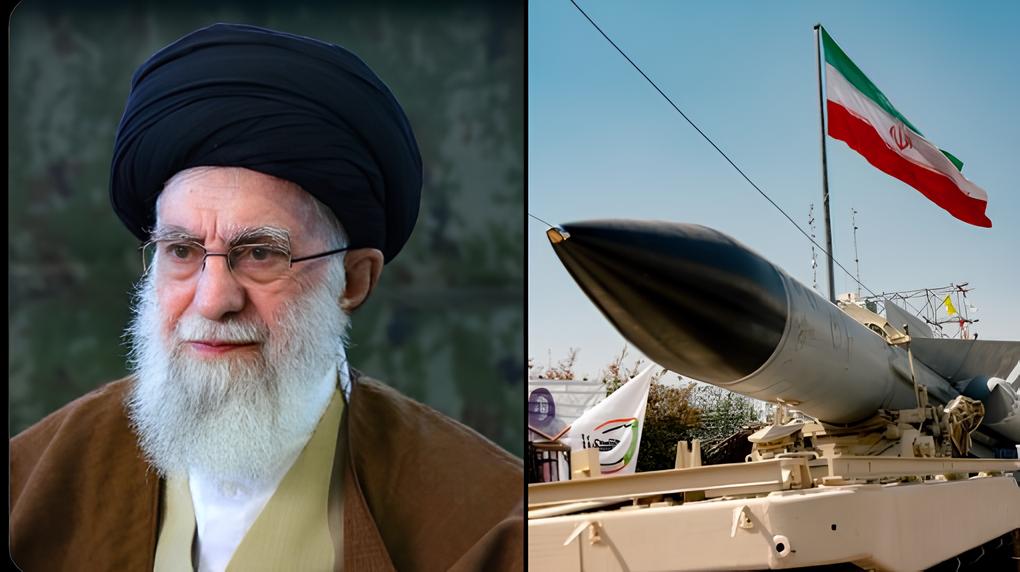Iran Targets US Military Base
In a dramatic escalation of the ongoing Middle East conflict, Iran launched a missile attack on the United States’ largest military base in the region, Al Udeid Air Base in Qatar, on June 23, 2025. This strike was a direct retaliation to the US airstrikes on Iranian nuclear facilities over the preceding weekend, marking a significant intensification in the volatile Iran-US-Israel confrontation.
Iran Missile Attack on US Base in Qatar: Background and Context
The missile attack came shortly after the US executed surprise airstrikes targeting three critical Iranian nuclear sites—Fordow, Natanz, and Isfahan—using B-2 bombers and cruise missiles. The US claimed these strikes inflicted “monumental damage” on Iran’s nuclear capabilities, aiming to curtail Tehran’s nuclear ambitions. Iran’s response was swift, with its Islamic Revolutionary Guard Corps (IRGC) announcing a “powerful and devastating missile attack” on the Al Udeid Air Base, located near Doha, Qatar’s capital.
Al Udeid Air Base is a strategic hub for US military operations in the Middle East, hosting the Combined Air Operations Center and the 379th Air Expeditionary Wing, the largest expeditionary wing globally. This base is essential for command and control of air power across the region, making it a critical target for Iran’s retaliation.
Details of the Iran Missile Attack on US Base in Qatar
On the evening of June 23, multiple missiles were launched by Iran targeting the Al Udeid Air Base. Explosions and bright flares were reported over Doha, with Qatar’s Defense Ministry confirming that its air defense systems successfully intercepted the missiles, preventing casualties or damage. Qatar condemned the attack as a “flagrant violation” of its sovereignty and international law, emphasizing that its airspace is now secure and that it reserves the right to respond proportionally.
In addition to the Qatar strike, Iran reportedly targeted the Ain al-Assad Air Base in Iraq, another significant US military installation. Although Iran did not claim responsibility for the attack on the Iraqi base, it is suspected that allied militias may have been involved.
Iran’s National Security Council stated that the missile barrage matched the number of bombs the US dropped on its nuclear sites, signaling a calibrated response intended to avoid further escalation while demonstrating its capability and resolve.
Regional and Global Reactions to the Missile Attack
The missile attack heightened tensions across the Gulf region. Bahrain, home to the US Navy’s 5th Fleet headquarters, temporarily suspended flights in its airspace as a precautionary measure, mirroring Qatar’s earlier closure. The US Embassy in Qatar issued warnings for American citizens to shelter in place due to the heightened threat environment.
President Donald Trump, along with senior defense officials including Secretary of Defense Pete Hegseth and Chairman of the Joint Chiefs of Staff General Dan Caine, monitored the situation closely from the White House Situation Room, underscoring the gravity of the crisis.
Internationally, the attack drew sharp condemnation. Qatar’s Foreign Ministry labeled the strike as a breach of its sovereignty and international law, while calls for de-escalation echoed throughout the Middle East and beyond. Arab nations expressed concern over the potential for the conflict to spiral into a broader regional war.

Strategic Implications of the Iran Missile Attack on US Base in Qatar
This missile attack represents a significant moment in the evolving Iran-US conflict, reflecting Tehran’s willingness to directly challenge American military presence in the Gulf. The precision and scale of the strike, coupled with Iran’s public messaging, signal a strategic posture balancing retaliation with restraint to avoid a full-scale war.
The attack also underscores the vulnerability of US military installations in the region to Iranian missile capabilities. Despite recent Israeli operations that reportedly depleted Iran’s medium-range missile stockpile, Iran retains a substantial arsenal of short-range rockets and drones capable of striking US bases within regional reach.
Oil markets responded to the attack with a brief drop in crude prices, reflecting concerns over regional stability and the potential disruption of critical energy supply routes such as the Strait of Hormuz.
Iran Missile Attack on US Base in Qatar Marks a Critical Escalation
The missile attack on Al Udeid Air Base in Qatar by Iran marks a pivotal escalation in the Middle East conflict following US strikes on Iranian nuclear sites. While Qatar’s effective air defenses prevented casualties and damage, the strike sends a clear message of Iran’s military reach and resolve. The incident has heightened regional tensions, prompting international calls for restraint amid fears of broader conflict.
As the situation develops, the global community watches closely, aware that further retaliations or miscalculations could plunge the region into a deeper crisis. The Iran missile attack on US base in Qatar thus stands as a stark reminder of the fragile balance of power and the high stakes involved in the ongoing geopolitical struggle.
Read More Latest Political News HERE





Reading this is like walking through a sunlit forest, where every leaf, shadow, and texture is revealed slowly. The text encourages careful attention, mindful observation, and reflective engagement, producing an experience that is meditative, immersive, and quietly profound.